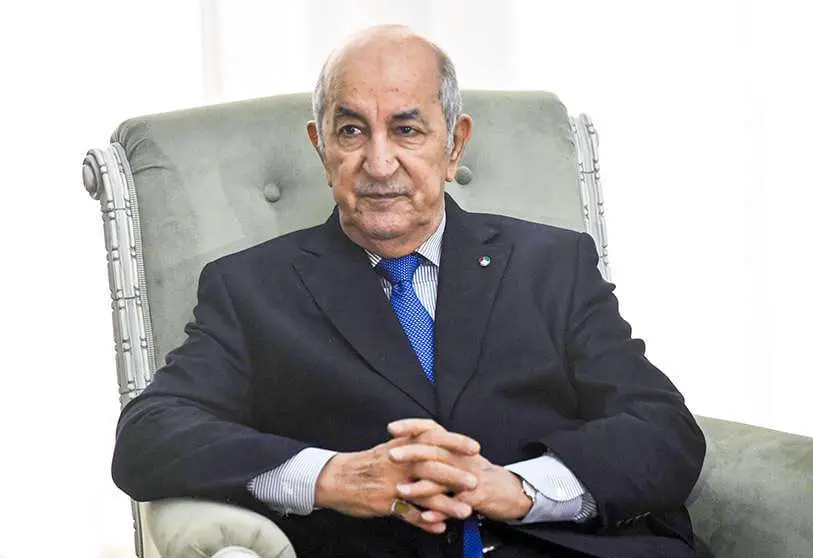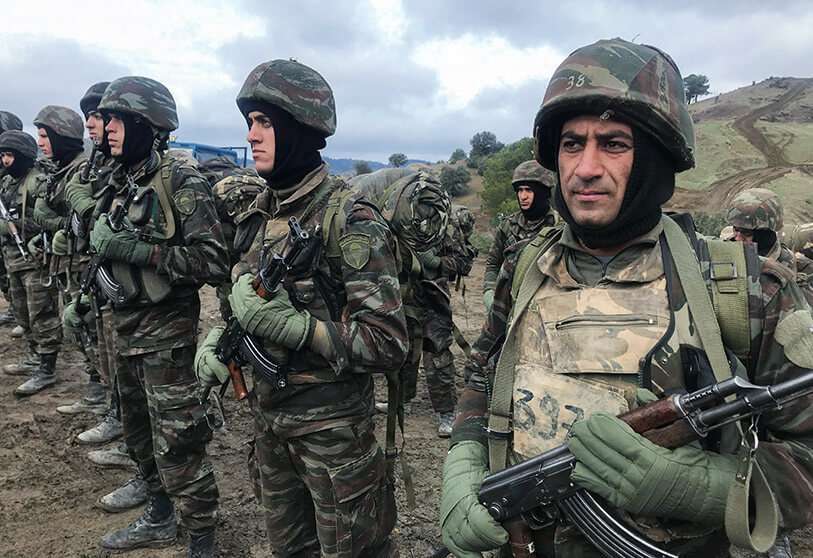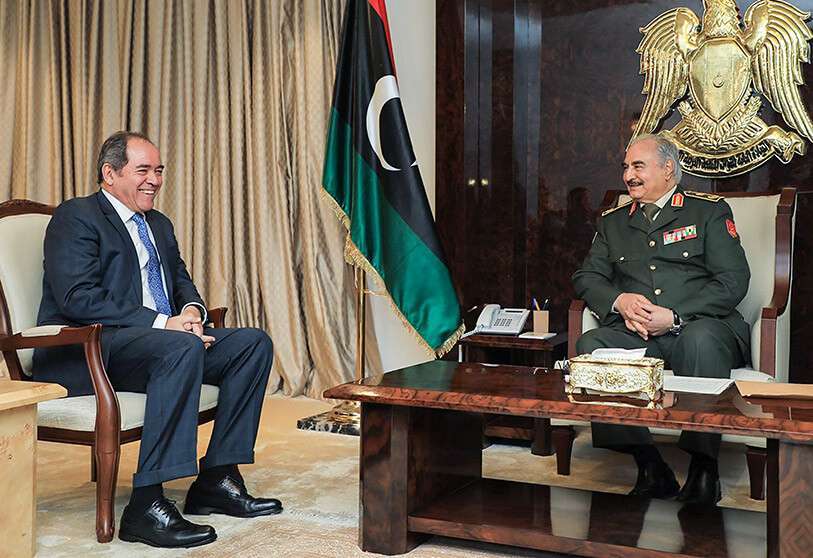Algeria makes a move on the Libyan chessboard

Libya has become a war of legitimacy and a war to control the country's natural resources, in particular oil. Black gold has always been the coveted wealth of the Middle East and North Africa. The highly prized fuel has shaped the evolution of some of the bloodiest conflicts of the 21st century, such as the one in Libya. Geopolitical interests and disregard for the country's complexities have brought the North African nation to the brink. The conflict that has plagued the nation is a cause for concern for countries such as Algeria.
Algerian President Abdelmadjid Tebboune reaffirmed his country's willingness to provide aid and assistance to Libya in "the resolution of some problems raised" ruling out any "ambition or vision" in this neighbouring country. "Algeria is at Libya's disposal. We have no ambitions or vision other than what the Libyan brothers have for their country," the president declared today during a joint press conference with the head of the transitional Presidential Council in Libya, Mohamad al-Menfi, who arrived in the capital Algiers this morning as part of a two-day official visit.

At the same time, President Tebboune recalled Algeria's initial position on the situation in the neighbouring country, recalling that its position is "currently accepted at the international level" and that it constitutes a move towards the legislative and presidential elections scheduled for 24 December. "The final solution to the crisis in Libya is the holding of elections that will give more legitimacy to both the National Council and the president through a double parliamentary and presidential election at the same time," declared the Algerian president, before reaffirming Algeria's readiness to help Libyans "to make their country's voice heard".
President Tebboune thus confirms the change in Algeria's defence doctrine. The constitutional reform, desired by the head of state and adopted by referendum on 1 November 2020, opens the way to a possible deployment of the Algerian army abroad. Until now, Algeria had ruled out any military intervention outside its borders in the name of anti-imperialism. However, it now authorises its army to participate in peacekeeping operations within the framework of respect for the principles and objectives of the United Nations, the African Union and the Arab League. The new constitution gives the president, supreme commander of the armed forces and minister of defence, the right to mobilise troops, with the approval of two-thirds of Parliament.

Algeria has strengthened its bilateral relations to address the insecurity caused by the Libyan conflict and the Sahel. In addition to troops loyal to Haftar and Sarraj, a number of actors such as organised crime networks and armed militias were involved in the conflict. This situation is exacerbated by the region's porous borders and structural insecurity. All of this has favoured the emergence of a war economy from which large sectors of the population, organised crime groups and terrorist networks benefit.
Poverty and food insecurity, underdevelopment and corruption have taken root on the doorsteps of these two countries. To these developments must be added the multidimensional crises caused by terrorism and transnational organised crime. Algeria fears that this conflict will increase the fragilities and tensions present in the region and that these threats will be multiplied by the presence of foreign powers. For this reason, it had sought to reclaim its place on the Libyan chessboard by insisting that the future of the North African nation can only be decided by Libyans themselves.

However, despite progress towards a political solution for Libya after a decade of violence and chaos, most of the country is still controlled by armed groups, corruption is rampant and external powers involved in the conflict have not withdrawn. Since last March, power has been in the hands of the National Unity Government (GNU), elected by the Forum for Political Dialogue in Libya (FDPL), an unelected body created by the UN outside the governments that had been at loggerheads until then and which must unify the country, maintain the ceasefire and lead it until the next elections.
For his part, the Libyan official, Al Manfi, said that the meeting provided an opportunity to discuss other issues of common interest, in particular "security in the south of Libya, which is also part of the common security of the two countries". "The meeting focused on the achievements made so far, such as the reunification of institutions, in particular the military institution and the ceasefire," he said. The meeting allowed, among others, to address "technical aspects" related to the opening of border crossing points underlining "the importance of this issue for the Libyans," he added.

In the last five years, Libya has become a huge smuggling hypermarket and the engine of a circular corsair economy in North Africa and the Sahel that thrives on the illegal sale of fuel, arms and food, provides work for thousands of people and has made its coasts the main springboard for irregular migration in the Central Mediterranean, the world's deadliest migratory route.
The complicated situation in Libya has forced a multitude of actors, from countries to international organisations, to put maximum effort into mediation and the development of forums of all kinds to try to take steps towards a solution to put an end to the conflict. Countries such as Morocco, Tunisia and Egypt have hosted meetings at different levels in recent months, mainly at the military and political level. In Libya, the tangle of interests, dynamics and movements is making it very difficult for talks to develop.










